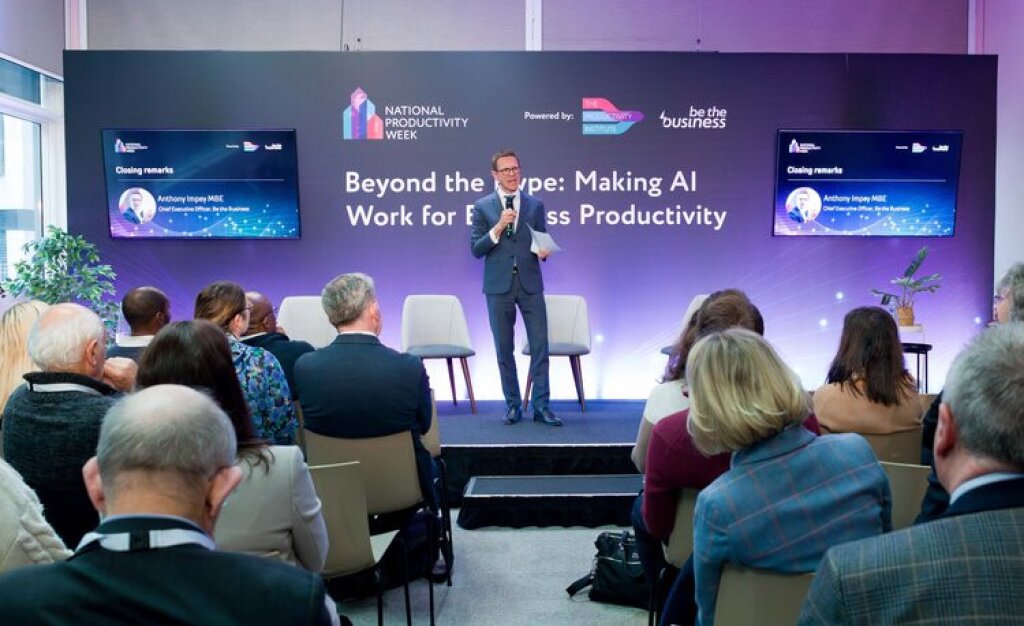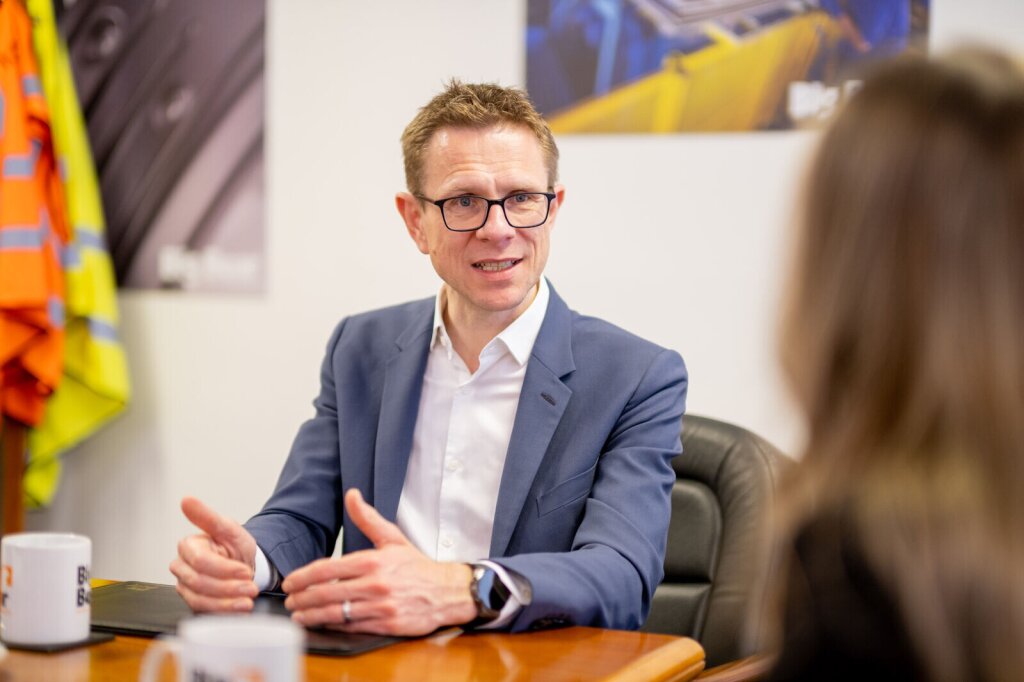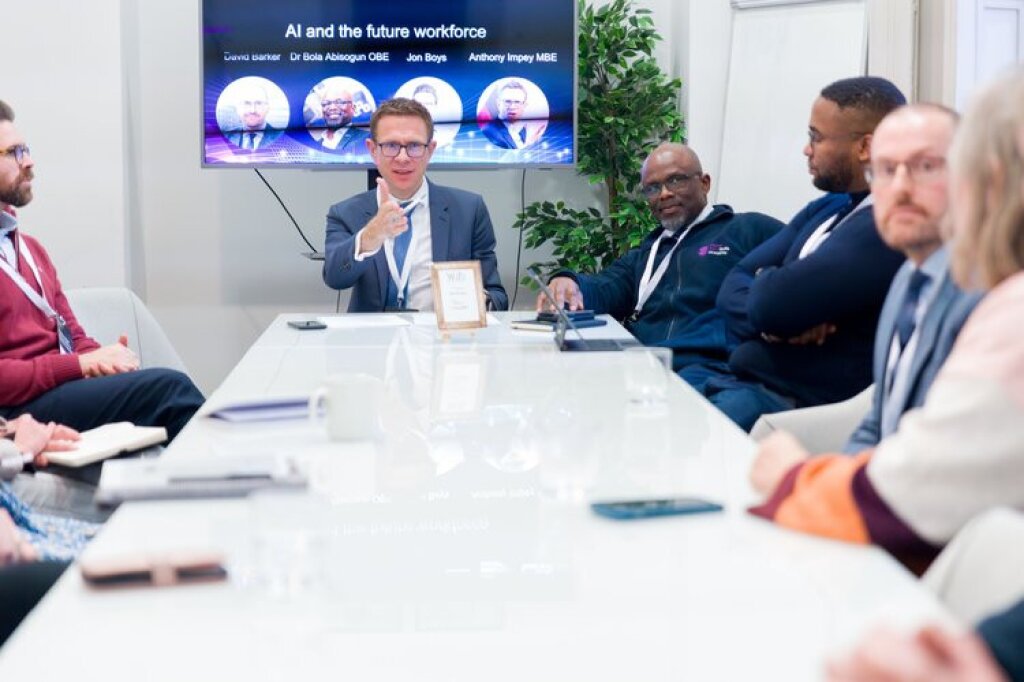It comes as no surprise that Collins, the dictionary publisher, has named “AI” as the most notable word of 2023.
An acronym that sparks both fear and fascination in equal measure, the use of the word has quadrupled in the last year, matching the rapid development of the technology from the stuff of science fiction to an integrated part of every day.
One area where AI has been frequently discussed is its potential impact on businesses, in particular business productivity.
This comes at a time that the UK finds itself in a productivity dead end. After successive years of negligible growth (the most recent figures from the Office for National Statistics (ONS) revealed that productivity – measured as output per worker – crept up by only 0.3% in the second quarter of 2023 compared with the same period the previous year), the UK now languishes at the bottom of the productivity league table, just ahead of Japan.
“62% of us say that we spend too much time looking for information we need to be effective in our roles, which impacts our productivity.”
In fact, Be the Business’ G7 Productive Business Index found that UK business leaders are under-indexing on performance, and investment and improvement in capabilities linked to productivity compared to their international peers. And while confidence amongst business leaders is high, they are not taking the action needed to turn this confidence into results. This poor record impacts everything, from wages and standards of living to job security and business resilience.
But just a 1% annual improvement in small business productivity, maintained over five years by all employing SMEs would grow the UK economy by £94 billion and add £65,000 in turnover to each business. It’s a staggering amount of money – and an opportunity that we can’t afford to miss.
Against this backdrop, Be the Business and The Productivity Institute partnered to deliver Beyond the Hype: Making AI Work for Business Productivity as part of the inaugural National Productivity Week. A day dedicated to sharing AI insights and practical tips to help business leaders successfully deploy productivity-enhancing technology in their workplaces, the event shed light on AI’s efficiency implications and opportunities.
Citing data from Microsoft’s own research, our keynote speaker, Alison Wright, SMB Director at the company’s UK arm, highlighted the small yet significant improvements AI could make to business productivity.
Currently, we spend 57% of our working week communicating (via email, in meetings, on messaging apps) instead of creating.
At the same time, 62% of us say that we spend too much time looking for information we need to be effective in our roles, which impacts our productivity. By adopting AI for these tasks, businesses have already seen productivity gains, equating to 1.2 hours of time every week for every employee.
Jurga Zilinskiene MBE, founder of Guildhawk, a translation services business, and Be the Business Ambassador, cited similar improvements from within her own firm. In a recent project with a new client, her team saw cross-platform visibility increase from 12% to almost 100% with the integration of AI. This ultimately saved time, money and built a strong working relationship with the client.
“AI has the ability to improve much of how we operate, freeing us from unproductive email chains in favour of time spent on creative, innovative work.”
Finally, responding to Elon Musk’s recent comments about how AI will replace every job, Tera Allas CBE, Director of Research and Economics at McKinsey & Co, commented: “AI will help us work on more meaningful things. We’ll be more productive so there will be more demand. In the end, there will be more jobs, not fewer.”
Our AI event coincided with the one-year anniversary of Chat GPT’s launch, which triggered the fastest tech adoption growth curve ever seen, surmounting 100 million users in just three months. In comparison, the internet took seven years to reach this number of users. Whether we want it to or not, AI use is increasingly being used in our businesses.
But AI, much like the tools of the industrial revolution that caused such controversy at the time, has the ability to improve much of how we operate, freeing us from unproductive email chains in favour of time spent on creative, innovative work. And as Alison Wright pointed out, the use of AI isn’t just about business growth, it’s also about employee retention, greater customer service, visibility and functionality. It sounds much more productive to me.
By Anthony Impey MBE
CEO of Be the Business
Related
Celebrate small businesses by investing in productivity
Seeking support is a sign of strength
Actions speak louder than words when it comes to productivity policy
Stay in the know
Subscribe to our monthly Insights newsletter to hear about our upcoming research, or browse the archive.



